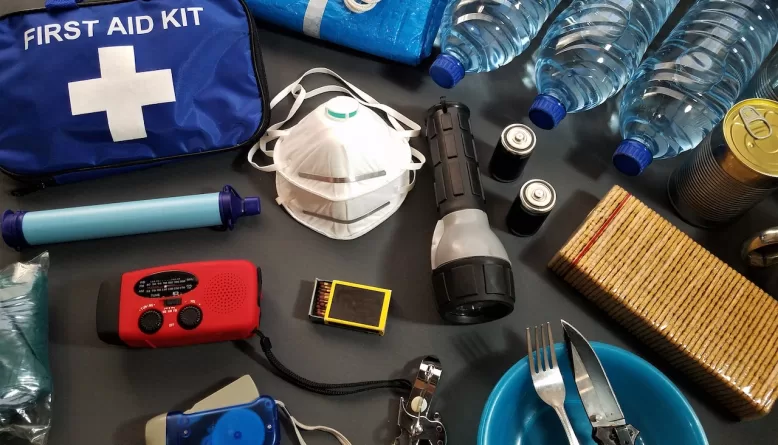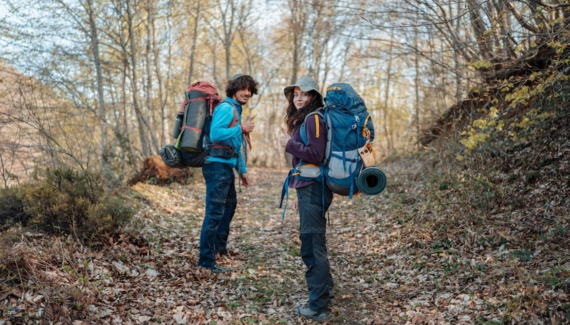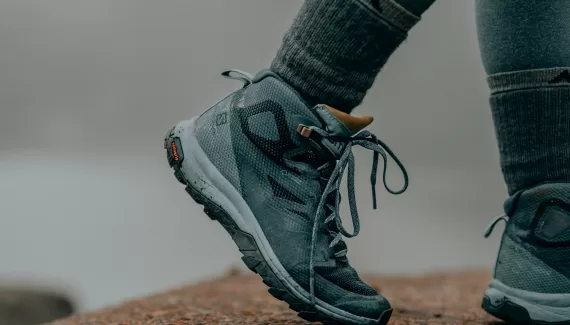As a beginner hiker, it can be overwhelming to figure out what gear you need to bring on a hike. Having the right hiking essentials can make all the difference in a successful and enjoyable hike. In this article, I will go over the top 10 hiking essentials, provide a hiking packing list for both day and overnight trips, and give tips on hiking essentials for beginners.
Benefits of having the right hiking gear
Investing in quality hiking gear can make your hiking experience safer and more enjoyable. Having the right gear can protect you from the elements and keep you comfortable on the trail. For example, a good pair of hiking boots can prevent blisters and injuries, while a quality backpack can distribute weight evenly and reduce strain on your back.
Having the right gear can also help you be prepared for unexpected situations. For example, bringing a map and compass can help you navigate if you get lost, and a first aid kit can provide relief for injuries. Additionally, proper gear can help protect the environment by minimizing your impact on the trails.
Related Article: Discover the Best Hikes Near You: Top 5 Trails to Explore This Year
The 10 hiking essentials
The 10 hiking essentials are a set of items recommended by the National Park Service to bring on all hikes, regardless of length or difficulty. These essentials are:
- Navigation (map and compass)
- Sun protection (sunscreen, sunglasses, hat)
- Insulation (extra clothing layers)
- Illumination (headlamp or flashlight)
- First aid kit
- Fire (matches, lighter, or fire starter)
- Repair kit and tools (knife, duct tape, etc.)
- Nutrition (extra food)
- Hydration (extra water)
- Emergency shelter (tent, space blanket, etc.)
It’s important to note that these essentials are just a starting point and may need to be adjusted based on individual needs and the specific trail.
Hiking packing list for a day trip
For a day hike, it’s important to bring enough supplies to be prepared for the elements and unexpected situations. In addition to the 10 hiking essentials, here is a packing list for a day trip:
- Backpack
- Hiking boots or shoes
- Hiking socks
- Moisture-wicking clothing
- Rain jacket or poncho
- Hat or beanie
- Gloves
- Insect repellent
- Personal toiletries (toilet paper, hand sanitizer)
- Camera or phone
Hiking packing list for an overnight trip
For an overnight trip, you will need to bring additional gear and supplies. In addition to the 10 hiking essentials and the day trip packing list, here is a packing list for an overnight trip:
- Tent
- Sleeping bag
- Sleeping pad
- Cooking supplies (stove, fuel, pot, utensils)
- Food (enough for all meals plus snacks)
- Water filter or purification tablets
- Multi-day backpack Extra clothing layers
- Personal hygiene items (toothbrush, toothpaste, wet wipes)
- Cash or credit card
Hiking essentials for beginners
As a beginner hiker, it’s important to invest in quality gear that will make your experience more enjoyable. Here are some additional hiking essentials for beginners:
Good quality hiking boots or shoes with ankle support
- Moisture-wicking clothing to keep you dry and comfortable
- A comfortable and properly fitting backpack with a hip belt
- Trekking poles to reduce strain on your joints
A hydration system, such as a water bladder or water bottles
Hiking gear essentials
In addition to the 10 hiking essentials, there are a few additional gear items that can make your hiking experience more comfortable:
Trekking poles to reduce strain on your joints
A comfortable and properly fitting backpack with a hip belt A hydration system, such as a water bladder or water bottles A GPS device or phone app for navigation
Insect repellent to keep bugs at bay
Hiking must-haves and necessities
When it comes to hiking, there are a few must-haves and necessities that should always be in your pack: A map and compass for navigation
Sunscreen and sunglasses for sun protection A first aid kit for emergencies
Extra food and water for unexpected situations
Warm and waterproof clothing for changing weather conditions
Hiking supplies and equipment
In addition to the 10 hiking essentials, there are a few additional supplies and equipment items that can make your hike more enjoyable:
A camera or phone to capture memories and moments Binoculars for wildlife viewing
A lightweight chair or seat pad for breaks and rest stops A book or journal for relaxation and reflection
Conclusion and final tips
Having the right hiking essentials can make all the difference in a successful and enjoyable hike. In addition to the 10 hiking essentials, it’s important to bring appropriate gear for the specific trail and individual needs. Investing in quality gear can make your hiking experience safer and more comfortable.
As a final tip, always make sure to pack out all trash and leave no trace to minimize your impact on the environment. Happy hiking!
Related Article: Solo Travel Made Safe: Expert-Recommended Safety Tips for Solo Travelers
CTA
Do you have any hiking essentials that you always bring on your trips? Share in the comments below!



No Responses Yet